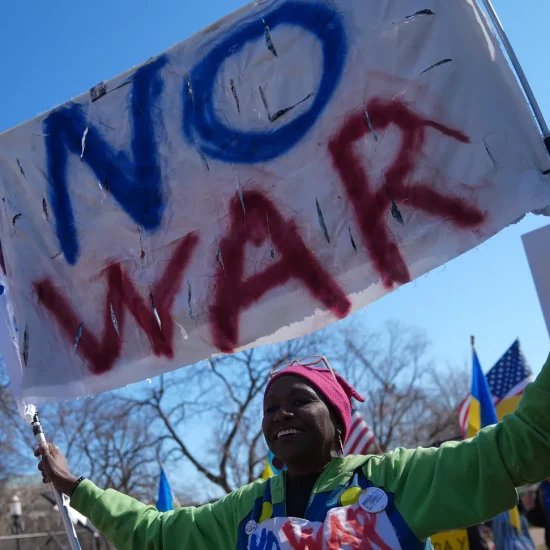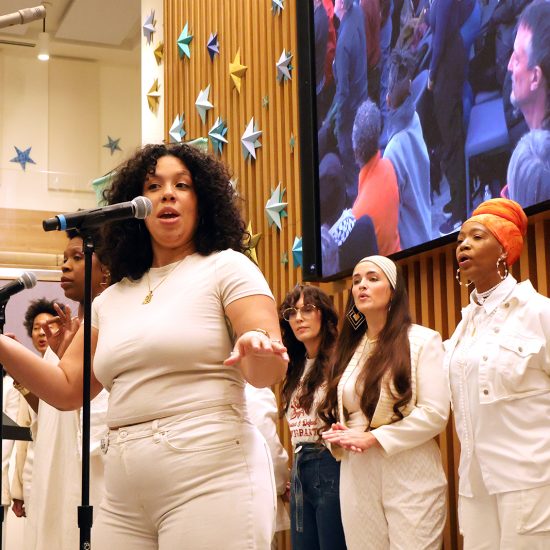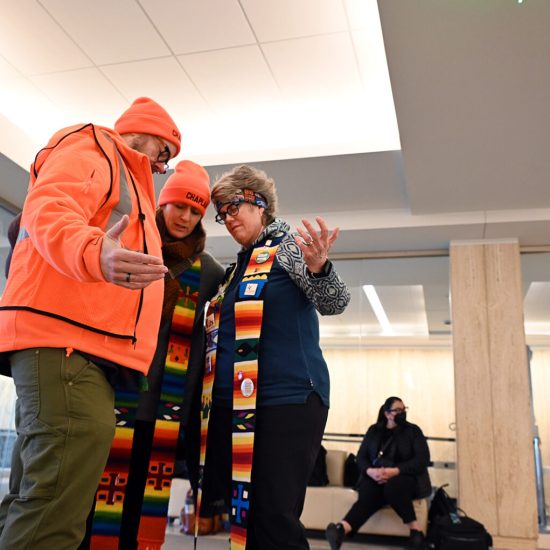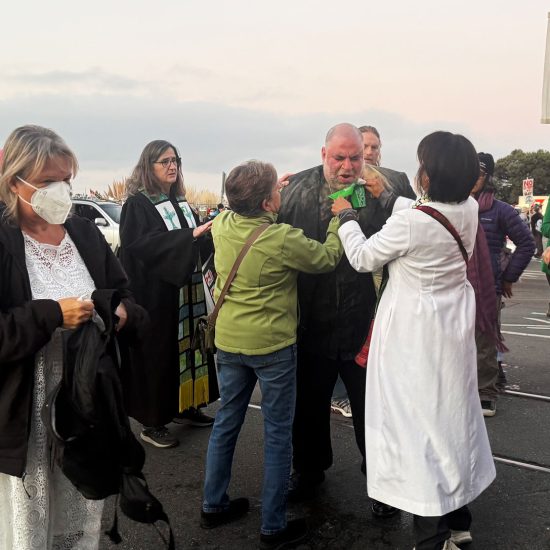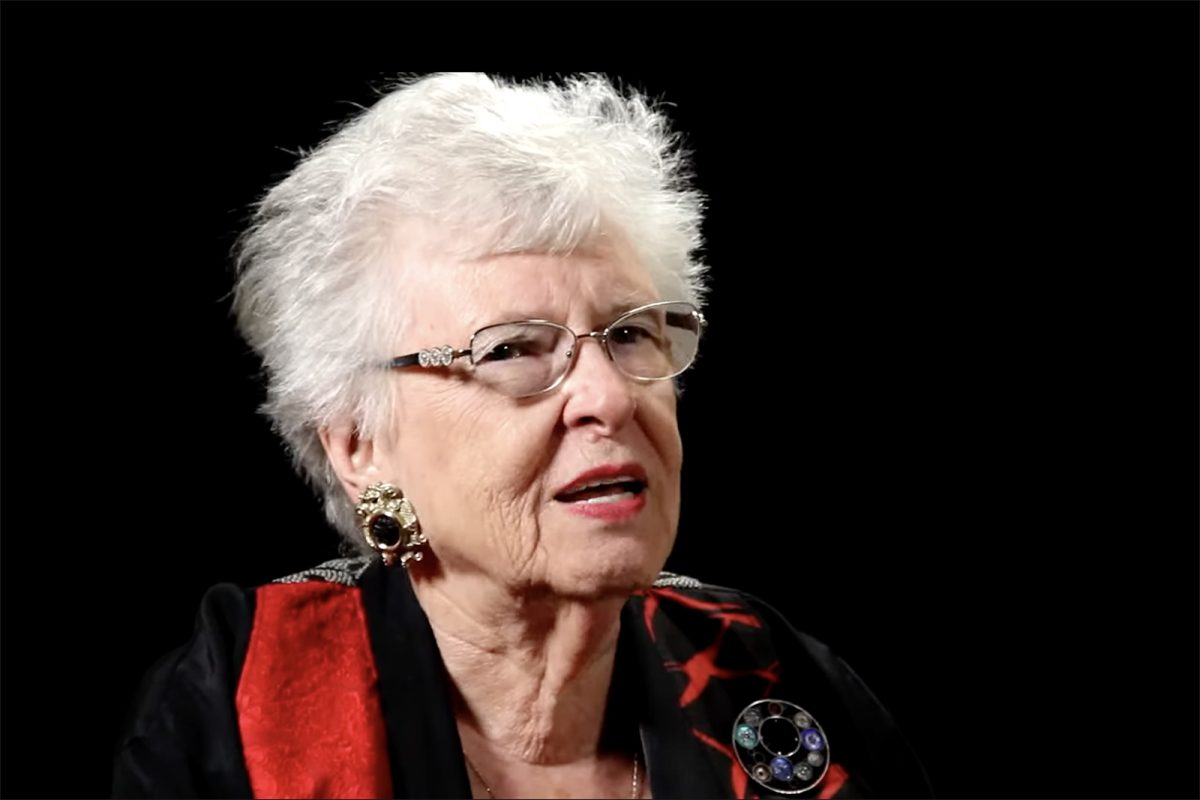
(RNS) — The Rev. Joan Brown Campbell, the first ordained woman to lead the National Council of Churches and the U.S. office of the World Council of Churches, died in late March at the age of 93.
Campbell, who also was the director of religion at the Chautauqua Institution, was described as “an extraordinary ecumenist and activist” by Bishop Vashti McKenzie, the current NCC general secretary.
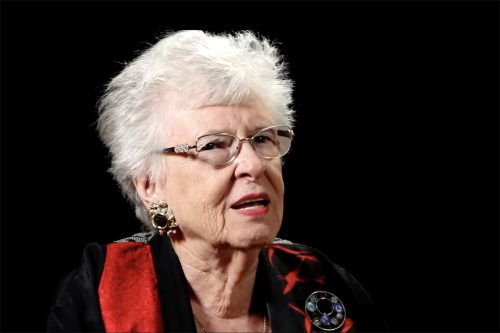
The Rev. Joan Brown Campbell. (Video screen grab)
“Her vision was always forward-thinking, and her energy was contagious,” McKenzie wrote in an announcement in the April 5 newsletter of the National Council of Churches, a coalition of 37 Christian member denominations, including Protestant, Orthodox, evangelical, Anglican, historic African American, and peace church traditions.
“Whether the focus was journeys to Switzerland or experiences at Chautauqua, Joan’s enthusiasm and dedication to the cause inspired all who worked alongside her.”
Campbell died March 29 in Chagrin Falls, Ohio, from complications of dementia, said the Rev. Leslie Copeland-Tune, the NCC’s chief operating officer.
At the Chautauqua Institution, an intellectual and arts-focused summer retreat center in southwestern New York state, Campbell fostered ecumenism and interfaith relations.
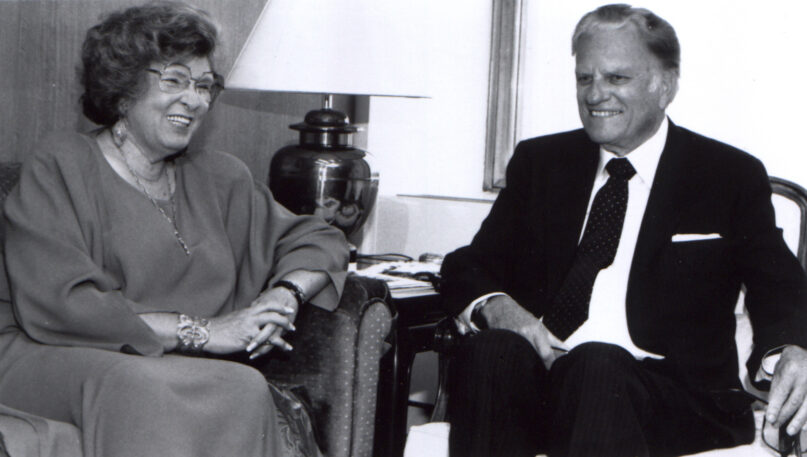
National Council of Churches General Secretary the Rev. Joan Brown Campbell, left, visits with the Rev. Billy Graham at The Interchurch Center in New York City in 1991. (RNS file photo)
“We are a diverse congregation of many denominations, even other religions, and that reality has been, of course — What are the words? — rich and full,” she said, speaking in an undated video of a worship service at Chautauqua, in a description she became known for.
The Youngstown, Ohio, native crossed many religious lines in her decades of work on social issues. She was a key player in high-level meetings with Archbishop Desmond Tutu and was the only woman among more than 200 clergy who processed into St. George’s Cathedral in Cape Town at the Nobel Peace Prize winner’s enthronement service in 1986. Campbell later led a delegation that presented Pope John Paul II with a copy of the New Revised Standard Version of the Bible, first published by the NCC in 1989, according to an obituary posted by a Cleveland funeral home.
She also had a closed-door meeting with evangelist Rev. Billy Graham, who rarely met alone with a woman, and sometimes created seating issues in contexts where men and women traditionally sit separately.
Asked in a 2016 interview with Religion News Service about how she dealt with male clergy, she said, “I think that my own style, which some people took issue with, is not one of trying to make the other side the enemy as much as it is to see what the barriers are and see if you can climb across those barriers, and then that will be a major victory, and it opens doors for other people.”
Long committed to civil rights, in 1965 she invited the Rev. Martin Luther King Jr. to her predominantly white church in the Cleveland suburbs after King observed that he’d only spoken to Black congregations in the area. “I, being naive and a 30-year-old, said, ‘Well, I think you could come to our church,’” she recalled.

The Rev. Joan Brown Campbell speaks during the 2017 Festival of Faiths in Louisville, Kentucky. (Photo by John H. Nation/Flickr/CC BY 2.0)
“Little did I know it was the beginning of who I am today,” she told RNS. After influential members of her Shaker Heights church opposed King’s presence inside their building, she recalled, King “finally did speak there, but he spoke outside on the steps of the church, and there were at least 3,000 people there to hear him, and that would have never been true had it been inside the church.”
Two years later, she backed Carl Stokes in his campaign to become Cleveland’s first Black mayor.
She was ordained by three different denominations: the Progressive National Baptist Convention, with which King was affiliated, the Christian Church (Disciples of Christ), and the American Baptist Churches USA.
In turn, she encouraged other women to be involved in ordained ministry and ecumenism.
“She was truly a lioness who paved the way for so many,” said the Rev. Angelique Walker-Smith, WCC president for North America, in the WCC announcement of Campbell’s death.
Campbell traveled to Belgrade with the Rev. Jesse Jackson to negotiate, along with clergy from the Serbian Orthodox Church, the release of American soldiers imprisoned there during the Balkan Wars of the 1990s.
Late in her time leading the NCC, she helped negotiate the return of a young boy named Elián González to his family in Cuba after he was found floating on an inner tube off the coast of Florida.
Campbell spent 14 years as director of Chautauqua’s department of religion after her tenure at NCC. “Joan served Chautauqua faithfully for more than a decade, assembling some of the most important preachers and prophetic voices in the world on our stages, in our pulpits and on our grounds,” said Michael E. Hill, Chautauqua Institution president, in an announcement of her death.
In 2017, when she was 86, Campbell, whose first marriage ended in divorce in 1974, married the Rev. Albert Pennybacker. Pennybacker, onetime associate general secretary for the NCC and long a partner with Campbell in religious justice activities, died in 2022.
In a 2021 RNS interview, Campbell recalled pushing back against naysayers who thought it was too much trouble to foster more inclusive religious gatherings. “It was never easy,” she said. “You had to work it through and love it through, but it was always important.”
Campbell added, in the end, “this is what’s going to make us, if we can come and find a way to be working together.”
A livestreamed memorial service for Campbell is scheduled for 4 p.m. Eastern on April 27 at Plymouth Church, a United Church of Christ congregation in Shaker Heights.


